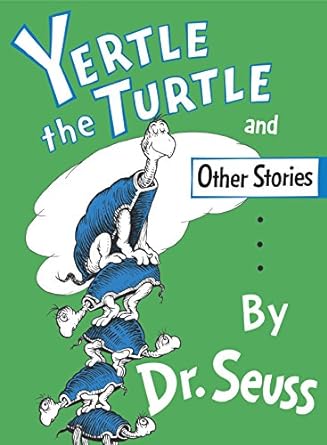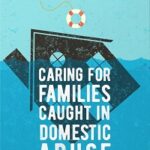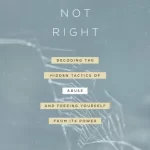Last year, I completed a course by Pastor Tom Pryde of Psalm 82 Initiative on abuse. He helps educate us to spot abusive relational systems so that we can help victims be fearless, free, and uncontrollable (a.k.a controlled by the Holy Spirit alone.) The class was immensely helpful to me in teaching me how to spot abusive relational systems.
I was reading the account of Yertle the Turtle by Dr. Seuss to my little ones and I can say that King Yertle’s system of ruling does test positive to being an abusive relational system. Control and power over other turtles is used by King Yertle to oppress. As Pastor Tom has noted, the mere presence of a power differential does not render a relationship abusive. Rather it’s how that power is used over others that can result in abuse. What we are looking for is coercive control and power used over a victim in a way that causes harm to the victim and creates a privileged status for the abuser.

In Dr. Seuss’s account, King Yertle commands the turtles to get under his feet, so he can see over all of his kingdom. Entitlement is definitely present.
“I’m ruler,“ said Yertle, “of all that I see. But I don’t see enough. That’s the trouble with me.”
Yertle’s entitlement creates a privileged status where he has a right to control other turtles and this privilege to control is definitely not reciprocal or something he would tolerate from them.
“So Yertle, the Turtle King, lifted his hand and Yertle, the Turtle King, gave a command. He ordered nine turtles to swim to his stone and, using these turtles, he built a new throne.”
Victims like the turtle named Mack on the bottom cry out.
“Beg your pardon, King Yertle. I’ve pains in my back and my shoulders and knees. How long must we stand here, Your Majesty, please?”
We see things like objectification and intimidation of others.
“Silence!” the King of the Turtles barked back. “I’m king, and you’re only a turtle named Mack.”
One incident of screaming may not indicate abuse but we get hints of abuse by looking at the effect it has on victims. An abuser’s behavior will show up in its impact on victims. Turtle bodies keep the score. Fear and intimidation is present.
“Turtles! More turtles! He bellowed and brayed. And the turtles ‘way down in the pond were afraid.” They trembled. They shook. But they came. They obeyed.”
The leader lacks empathy and doesn’t sympathize with the oppressed. Meanwhile victims cry out for justice.
“Your Majesty, please… I don’t like to complain, But down here below, we are feeling great pain. I know, up on top you are seeing great sights, but down at the bottom we, too, should have rights. We turtles can’t stand it. Our shells will all crack! Besides, we need food. We are starving!” groaned Mack.
The story has a happy ending, in that you can’t have an abusive relational system without an abuser and a compliant victim. By resisting tyranny, Turtle Mack found freedom for himself and others. He had more power than he realized.
“That plain little turtle whose name was just Mack, decided he’d taken enough. And he had. And that plain little lad got a little bit mad and that plain little Mack did a plain little thing. He burped! And his burp shook the throne of the king!”
That small little burp caused King Yertle to fall off his throne and into a mud pond.
King Yertle ended up experiencing the truth of Luke 14:11, which reminds us that whoever exalts himself will be humbled and whoever humbles himself will be exalted.
“And today the great Yertle, that Marvelous he, is King of the Mud. That is all he can see. And the turtles, of course… all the turtles are free as turtles and, maybe, all creatures should be.”
Points for further reflection:
- How will you use the power God has entrusted to you to imitate the Father’s love?
- “You cannot do justice without recognizing how power has been used to exploit and abuse, but you also cannot do justice without exerting power yourself.” – Tim Keller
- From Psalm 82 Initiative’s blog post The Challenge of Power:
Jesus said, “The meek shall inherit the earth,” which is to say the meek will ultimately win. That reality is obscured by a deep misunderstanding of what meekness actually is. Both those who desire power and those who think that power is the way to overthrow their oppressor will perceive a call to meekness as a weak capitulation to the other, but meekness is actually the most powerful and effective way to confront abuse. The key to understanding this is to consider the nature of meekness.
Meekness is not a lack of power. Rather, it is a harmless power, sufficient to act but also under control. In order to accomplish this balance, meekness requires a strength that is governed by a principled righteousness rather than a pragmatic morality. It acts in the service of justice while valuing mercy. Meekness is what happens when power is exercised in harmony with the golden rule.






